Experimental protocols using immunotechniques can often be improved through the optimal use of blocking reagents, diluents, and controls. Read more to learn about how to select appropriate diluents and blocking steps to prevent unwanted background, and how experimental controls can help identify the source of the off-target signal.
A guide to selecting control, diluent and blocking reagents.

Optimize your experimental protocols with control, diluent and blocking reagents.
When developing an immunotechnique, it is important to consider result analysis. The addition of the correct blocking reagents and experimental controls can improve assay performance and interpretation. The inclusion of positive and negative controls is important when generating data for publication.
Use this guide to learn more about the selection of appropriate control, diluent and blocking reagents in a range of immunotechniques to:
• Reduce background.
• Troubleshooting off-target signals.
• Facilitate analysis.
Flow cytometry
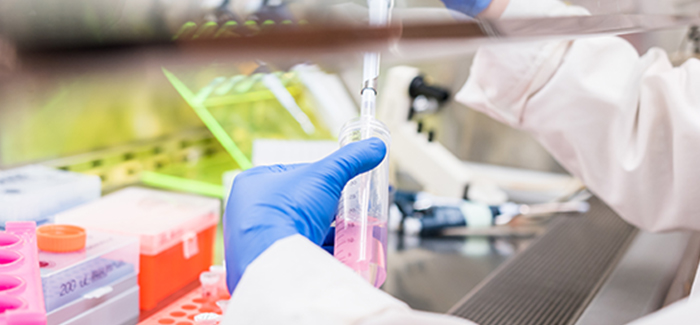
| Problems | Solution | Indicated product |
| Background from antibodies binding Fc receptors | Block Fc receptors. | Normal serum from the host of the labeled antibody |
| Use F(abʹ)2 format secondary antibody to avoid entrapment by Fc receptors. | F(abʹ)2 secondary antibodies |
|
| Confirmation that primary antibody binding is due to antigen specificity | Use an isotype negative control (non-specific IgG from the same species as the primary antibody) to demonstrate specific binding of the primary antibody. | ChromPure™ purified proteins |
| Confirmation that secondary antibody does not contribute to off-target signal | Use an isotype negative control (conjugated non-specific IgG from the same species as the secondary antibody) to demonstrate specific binding of the secondary antibody. | ChromPure™ purified proteins |
| Short on time and no directly conjugated primary available | Fab label your primary antibodies prior to incubation with sample. | FabuLight™ |
Western blotting

| Problems | Solution | Indicated product |
| Background (non-specific signal obscuring bands of interest) | Use appropriate blocking reagent to block membrane prior to incubating with primary antibody. | Normal serum (5% v/v) from the host species of the labeled antibody, or BSA (5% w/v)(IgG-free and protease- free) |
| Avoid using milk or BSA if using primary antibodies derived from goat, horse or sheep. Bovine IgG may interact with the antibody due to homologous epitopes of closely related species. | Normal serum (5% v/v) from the host species of the labeled antibody |
|
| Interference from reduced immunoprecipitating (IP) antibody when detecting 50 or 25 kDa proteins | To avoid detecting IP antibody heavy chains at 50 kDa, probe blot with conjugated anti-Light Chain specific antibody. | Anti-Light Chain antibodies |
| To avoid detecting IP antibody light chains at 25 kDa, probe blot with conjugated anti-IgG, Fc fragment specific after blocking with monovalent Fab fragment anti-Fc (FabuLight™). | Anti-Fc specific antibodies
Fab fragments (FabuLight™) |
| To confirm reporter enzyme activity, add a small sample of conjugated secondary directly to substrate and observe expected reaction. |
ELISA
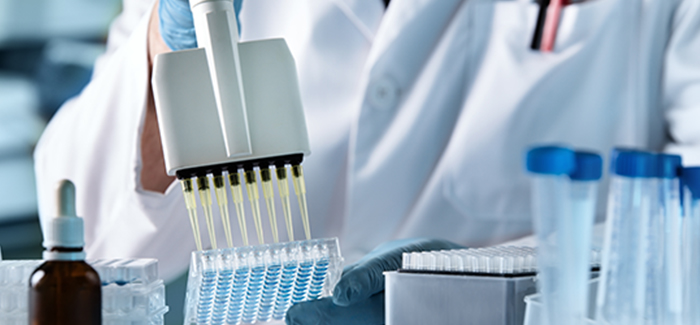
| Problems | Solution | Indicated product |
| Background | Use an appropriate volume of blocking reagent to completely block wells prior to incubating with the primary antibody. | Normal serum (5% v/v) from the host species of the labeled antibody, or BSA (5% w/v)(IgG-free and protease free) |
| No signal | Use a positive control to demonstrate activity of the labeled secondary antibody, coat with primary antibody isotype and detect directly with secondary antibody | ChromPure™ purified proteins |
Cautions for blocking with bovine serum albumin (BSA) or milk:Bovine serum albumin (BSA) and dry milk sometimes contain bovine IgG. With the exception of Jackson ImmunoResearch Bovine Anti-Goat IgG, many secondary antibodies such as Anti-Bovine, Anti-Goat, and Anti-Sheep will react with bovine IgG. Therefore, use of BSA or dry milk for blocking or diluting may significantly increase background and/or reduce antibody titer. For blocking, use normal serum (5% v/v) from Additional information on IgG- and Protease-free BSA from Jackson ImmunoResearch. |
IHC
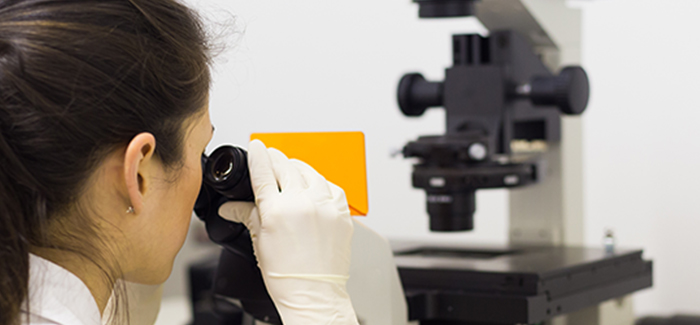
| Problems | Solution | Indicated product |
| Confirmation that primary antibody binding is due to antigen specificity | Use an isotype negative control (nonspecific IgG from the same species as the primary antibody) to demonstrate specific binding of the primary antibody. | ChromPure™ proteins |
| Background (general) | Block endogenous binding sites which may interact with experimental reagents. | Normal serum from the host of the labeled antibody. |
| Dilute antibodies in buffer without carrier proteins. Centrifuge working dilution to remove aggregates. | Correct diluent and preparation, e.g. PBS/Tween 20 | |
| Background (homologous Ig recognition) | Use a cross-adsorbed secondary antibody with minimal cross-reactivity to the cell or tissue species being analyzed. | Min X secondary antibodies |
| Block endogenous immunoglobulins. | Fab fragments | |
| Multiple labeling of primary antibodies from same host species (e.g. mouse on mouse) |
Utilize Fab fragments in suggested protocols to accomplish multiple labeling (see online). | Fab fragments |
| Immunolabel primary antibody prior to incubation. | FabuLight™ | |
| Endogenous enzymes | Inactivate endogenous peroxidases with hydrogen peroxide. | Hydrogen peroxide |
| Inactivate endogenous phosphatases with levamisole. | Levamisole | |
| Endogenous biotin | Block endogenous biotin. | Incubate with streptavidin, followed by free biotin. |
| Ionic or hydrophobic interactions |
Include detergent in buffers, optimize salt concentrations and pH. | Tween 20 and/or Triton X-100 |
Immunoreagents
Jackson ImmunoResearch offers a wide variety of immunoreagents designed to improve assay performance and ease of analysis. The immunoreagents below are highlighted within this guide. Please visit our website or reference our catalog for more information on the extensive range of secondary antibodies and conjugates manufactured at Jackson ImmunoResearch.
• Normal Serums
• ChromPure™ Purified Proteins from Normal Serums
• Monovalent Fab Fragment Affinity-Purified Antibodies
• IgG-Free, Protease-Free Bovine Serum Albumin
| If you require additional support with antibody selection or are experiencing problems with your experiment, please contact our technical team at tech@jacksonimmuno.com. |
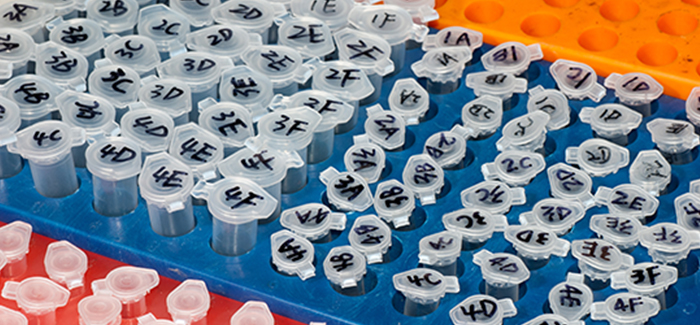
Normal serums
Normal serums are obtained from non-immunized animals, and consequently do not detect any specific antigen. Normal serum diluted to 5% (v/v) in PBS (or comparable buffer) is strongly recommended as a blocking agent to reduce background from nonspecific, conserved-sequence, and/or Fc-receptor binding. Best results are obtained with diluted normal serum from the same host as the labeled antibody, used as a separate incubation step before addition of the primary antibody.
ChromPure™ Purified Proteins from Normal Serums
ChromPure™ proteins are primarily used as experimental controls for either primary or secondary antibodies. They may also be used as blocking reagents for Western blotting, IHC and IF.ChromPure™ proteins are derived from the serum of non-immunized animals and do not recognize any known antigens. They are prepared using a variety of chromatographic techniques to yield material with no contaminating molecules observed up to a concentration of 20 mg/ml, making them ideal for use as experimental controls for the most sensitive of assays.ChromPure™ proteins are available in a variety of formats for many species, including whole immunoglobulin, F(ab’)2 and Fab fragments.
Human IgM, serum IgA and other proteins are also available. Jackson ImmunoResearch carries an extensive range of conjugates for this product line, including a range of fluorescent dyes and reporter enzymes, allowing the isolation of signal derived from non-specific interactions.
Browse ChromPure™ Purified Proteins
Monovalent Fab fragments
Affinity-Purified AntibodiesFab fragments can be used to block endogenous immunoglobulins to reduce background staining and to double label primary antibodies from the same host species. The following example shows how Fab fragments can be used to block endogenous immunoglobulins when using mouse primary antibodies on mouse tissue.
Browse Monovalent Fab Fragments
IgG-Free, Protease-Free Bovine Serum Albumin
Bovine serum albumin (BSA) is used extensively as a carrier protein to dilute antibodies and as a general protein blocking agent in immunoassays and immunodetection protocols. If BSA is the desired diluent or blocking reagent for your assay it’s important to use BSA that is suitable for the purpose.
Most BSA products, including those marketed as having no detectable IgG, are contaminated with low levels of bovine IgG.
Bovine IgG shares many epitopes with goat, sheep and horse IgG, and can become a target for secondary antibodies directed against those species (an exception is bovine anti-goat IgG). This may occur with other antibodies that cross-react with bovine IgG as well. The interaction may result in loss of antibody activity, and/ or increased background. The background may derive from sticky, soluble immune complexes or from non-specific binding from contaminating bovine IgG attracting cross-reacting labeled secondary antibodies.
Jackson ImmunoResearch Bovine Serum Albumin is IgG-free and protease-free. It does not contain contaminating IgG, which alleviates common immunoassay problems associated with many commercial high purity preparations of BSA. IgG-free BSA is supplied as a pure protein, freeze-dried from deionized water in 10 g, 50 g, and 250 g pack sizes.
Browse Bovine Serum Albumin
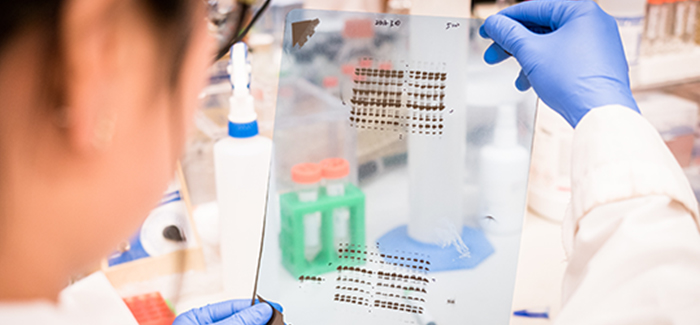
References:
Alberts B et al (1994) Molecular biology of the Cell. 3rd Ed. Garland Press. London.
Kalyuzhny A (2016) Immunohistochemistry – Essential Elements and Beyond. Springer International Publishing Switzerland.
Mann, M. & Jensen, O.N. (2003) Proteomic analysis of post-translational modifications. Nat. Biotechnol. 21, 255-261.